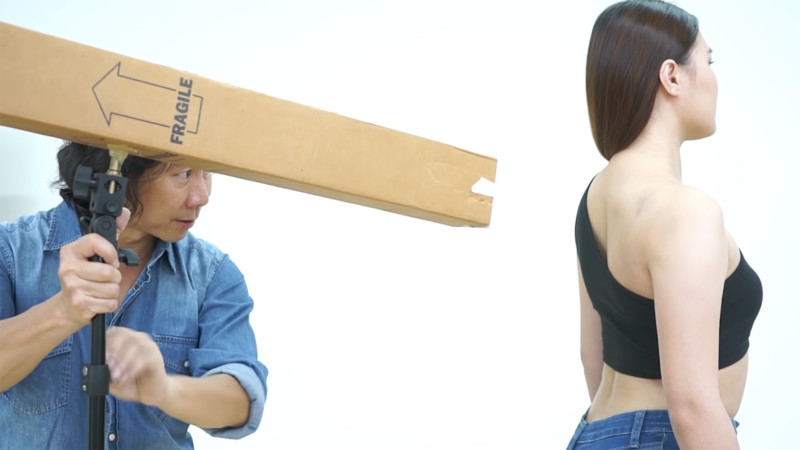Snoots Aren’t Good At Their Job, And Here’s Why
The purpose of a snoot is to take a light source and focus it down into a more defined point, but The Beyond Photography Show host Andrew explains in this 11-minute video that the physics of snoots makes them terrible at their job.
Instead, he offers a better solution for successfully getting a more perfect defined edge to lighting.
Andrew says that snoots, by design, are terrible at their job (in fewer words). Basically, the problem is that even though snoots do initially narrow the spread of light, because they are usually positioned farther away from a subject, the light has too much physical space to spread out yet again, even if the snoot is gridded.
Andrew also argues that Fresnel lenses aren’t a proper solution either, as not only are they more expensive and heavy, they still don’t do a great job at keeping a distinct edge to light.
To solve the problem, Andrew builds his own snoot that solves the main source of the problem by bringing the end of the snoot considerably closer to the subject. It’s by no means an attractive solution, but some of the best lighting modifiers are not custom, high-end products made by an expensive lighting manufacturer, but cheap pieces of cardboard (there is a reason that V-flats are a constant in any studio).

By using a long box that was used to ship backdrop paper, Andrew is able to bring the end of the snoot much closer to his subject without it getting in the way of the image and therefore helps it keep a more defined edge.
The light can still show flaring if the flash is set at too high of power, though. Below, Andrew demonstrates the difference between using his off-camera flash at max power versus 1/8 power:
![]()
Below are a few examples of the kinds of images that you can make with this custom snoot:
![]()
![]()
Calling it his “ugly snoot,” you can see the difference in a more typical portrait between using a regular snoot versus his custom one:
![]()
![]()
For more from The Beyond Photography Show, subscribe to their YouTube Channel.